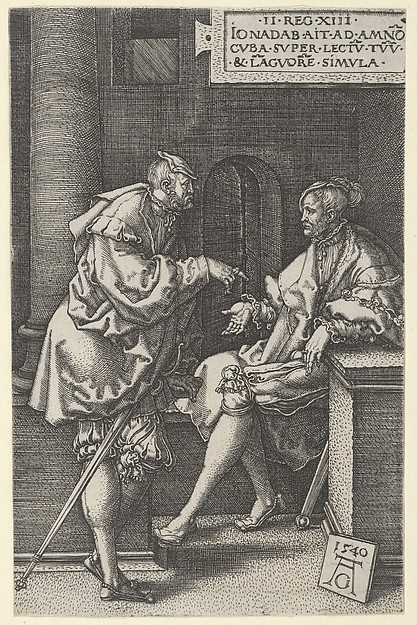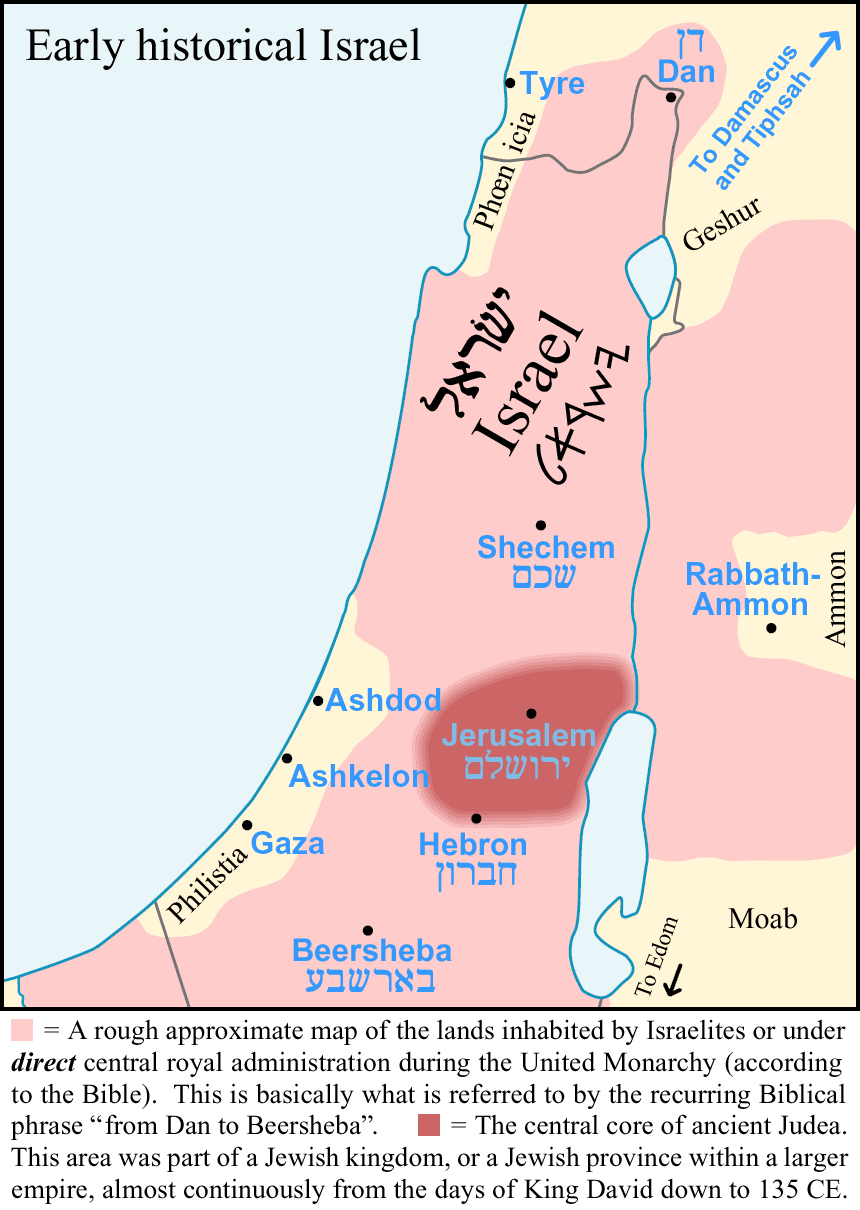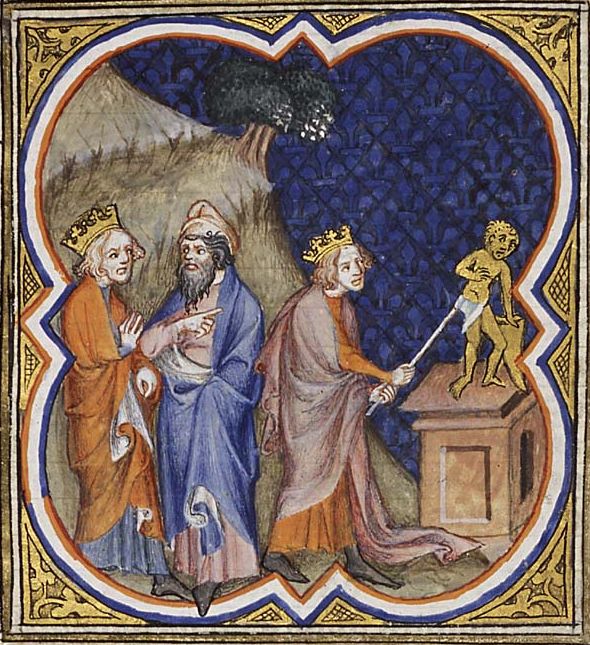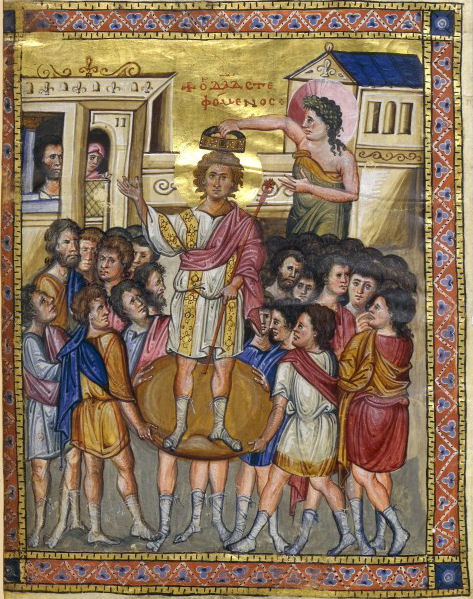|
Absalom
Absalom ( , ), according to the Hebrew Bible, was an Israelite prince. Born to David and Maacah, who was from Geshur, he was the only full sibling of Tamar. He is described in the Hebrew Bible as being exceptionally beautiful, as is his sister. In the narrative of 2 Samuel 13, his sister Tamar takes refuge at his house after she is raped by their paternal half-brother Amnon (born to David and Ahinoam, who was from Jezreel); David is angered by the incident, but does nothing, as Amnon is his heir apparent. Infuriated by the rape and David's inaction, Absalom assassinates Amnon and subsequently flees to Geshur, which is ruled by his and Tamar's maternal grandfather Talmai. Following three years in exile, he returns to Israel and rallies popular support against the House of David. A war ensues when Absalom's rebels mobilize at Hebron and begin fighting David's army in an attempt to overthrow him, but their revolt ends in failure when Absalom is killed by David's nephew and a ... [...More Info...] [...Related Items...] OR: [Wikipedia] [Google] [Baidu] |
2 Samuel 13
2 Samuel 13 is the thirteenth Chapters and verses of the Bible, chapter of the Second Book of Samuel in the Old Testament of the Christianity, Christian Bible or the second part of Books of Samuel in the Hebrew Bible. According to Jewish tradition the book was attributed to the prophet Samuel, with additions by the prophets Gad (prophet), Gad and Nathan (prophet), Nathan, but modern scholars view it as a composition of a number of independent texts of various ages from c. 630–540 BCE. This chapter contains the account of David's reign in Jerusalem. This is within a section comprising 2 Samuel 9–20 and continued to 1 Kings 1–1 Kings 2, 2 which deal with the power struggles among David's sons to succeed David's throne until 'the kingdom was established in the hand of Solomon' (1 Kings 2:46). Text This chapter was originally written in the Biblical Hebrew, Hebrew language. Chapters and verses of the Bible, It is divided into 39 verses. Textual witnesses Some early manuscripts c ... [...More Info...] [...Related Items...] OR: [Wikipedia] [Google] [Baidu] |
David
David (; , "beloved one") was a king of ancient Israel and Judah and the third king of the United Monarchy, according to the Hebrew Bible and Old Testament. The Tel Dan stele, an Aramaic-inscribed stone erected by a king of Aram-Damascus in the late 9th/early 8th centuries BCE to commemorate a victory over two enemy kings, contains the phrase (), which is translated as " House of David" by most scholars. The Mesha Stele, erected by King Mesha of Moab in the 9th century BCE, may also refer to the "House of David", although this is disputed. According to Jewish works such as the '' Seder Olam Rabbah'', '' Seder Olam Zutta'', and '' Sefer ha-Qabbalah'' (all written over a thousand years later), David ascended the throne as the king of Judah in 885 BCE. Apart from this, all that is known of David comes from biblical literature, the historicity of which has been extensively challenged,Writing and Rewriting the Story of Solomon in Ancient Israel; by Isaac Kalimi; page 3 ... [...More Info...] [...Related Items...] OR: [Wikipedia] [Google] [Baidu] |
Battle Of The Wood Of Ephraim
According to 2 Samuel, the Battle of the Wood of Ephraim was a military conflict between the rebel forces of the formerly exiled Israelite prince Absalom against the royal forces of his father King David during a short-lived revolt. Scholarly opinion is divided as to the historicity of the events in the Books of Samuel. Most scholars believe that the Books of Samuel contain a large amount of historical information, while there are some dissenters who view them as entirely fictional. Background Absalom, the third son of King David of Israel, had been newly returned from three years in exile in Geshur for the murder of his half-brother, Amnon and received a pardon with some restrictions. Later, he began a campaign to win the lost favour and trust of the people, which was successful. Absalom, under the pretense of going to worship at Hebron, asked King David permission to leave Jerusalem. David, unaware of his true intentions, granted it and Absalom left with an escort of 200 ... [...More Info...] [...Related Items...] OR: [Wikipedia] [Google] [Baidu] |
Tamar (daughter Of David)
Tamar () was an Israelite princess. Born to David and Maacah, who was from Geshur, she was the only full sibling of Absalom. She is described in the Hebrew Bible as being exceptionally beautiful, as is her brother. In the narrative of 2 Samuel 13, she is raped by her paternal half-brother Amnon (born to David and Ahinoam, who was from Jezreel) before fleeing with torn robes to Absalom's house; David is angered by the incident, but does nothing, as Amnon is his heir apparent. Absalom, infuriated by the rape and David's inaction, keeps Tamar in his care and later assassinates Amnon to avenge her, subsequently fleeing to Geshur, which is ruled by his and Tamar's maternal grandfather Talmai. Three years later, he returns to Israel and leads an armed revolt against the House of David, but is killed by David's nephew and army commander Joab during the Battle of the Wood of Ephraim. Tamar is described as being left "a desolate woman in her brother's house" and the sole guard ... [...More Info...] [...Related Items...] OR: [Wikipedia] [Google] [Baidu] |
Joab
Joab (; ), the son of Zeruiah, was the nephew of King David and the commander of his army according to the Hebrew Bible. Name The name Joab is, like many other Hebrew names, theophoric—derived from Yahweh (), the name of the God of Israel, and the Hebrew word "father" (). It therefore means "Yahweh sthe Father". Life Joab was the son of Zeruiah, a sister of king David (1 Chronicles 2:15–16). According to Josephus ( ''Antiquities'' VII, 1, 3) his father was called Suri.Flavius Josephus, ''Antiquities of the Jews''Book VII, Chapter 1, 3 Joab had two brothers, Abishai and Asahel. Asahel was killed by Abner in combat, for which Joab took revenge by murdering Abner against David's wishes and shortly after David and Abner had secured peace between the House of David and the House of Saul (2 Samuel 2:13–3:21; 3:27). While 2 Samuel 3:27 explicitly states that Joab killed Abner "to avenge the blood of his brother Asahel", Josephus (Antiquities VII, 1, 3) paints a differe ... [...More Info...] [...Related Items...] OR: [Wikipedia] [Google] [Baidu] |
Amnon
Amnon ( ''’Amnōn'', "faithful") was, in the Hebrew Bible, the oldest son of King David and his second wife, Ahinoam of Jezreel. He was born in Hebron during his father's reign in Judah. He was the heir apparent to the throne of Israel until he was assassinated by his half-brother Absalom to avenge the rape of Absalom's sister Tamar. Biblical account Amnon's background Amnon was born in Hebron to Ahinoam and King David. As the presumptive heir to the throne of Israel, Amnon enjoyed a life of power and privilege. Rape of Tamar Although he was the heir-apparent to David's throne, Amnon is best remembered for the rape of his paternal half-sister Tamar, daughter of David and Maachah. Despite the biblical prohibition on sexual relations between half siblings, Amnon had an overwhelming desire for her. He acted on advice from his cousin, Jonadab son of Shimeah, David's brother, to lure Tamar into his quarters by pretending to be sick and desiring her to cook a special meal for ... [...More Info...] [...Related Items...] OR: [Wikipedia] [Google] [Baidu] |
Tamar (name)
Tamar () is a female given name of Hebrew origin, meaning "date" (the fruit), "date palm" or just "palm tree". In the Bible, Tamar refers to two women: one is Tamar the daughter-in-law of Judah, and the other is Tamar the daughter of King David and full sister of Absalom. The latter was raped by her half-brother Amnon, leading Absalom to eventually kill him. Absalom named his daughter Tamar, described as a woman of great beauty. For a period, Tamar held the top spot for girls' names in Israel, but it dropped to second in 2022. Tamar was also among the Biblical names used by Puritans in the American Colonial Era in the 17th and 18th centuries. Puritan families sometimes used names of Biblical characters seen as sinful as a reminder of man's fallen state.Charles Wareing Endell BardsleyCuriosities of Puritan Nomenclature/ref> People with the given name Tamar * Tamar (Genesis), daughter-in-law of Judah in the Bible * Tamar (daughter of David), daughter of King David and full siste ... [...More Info...] [...Related Items...] OR: [Wikipedia] [Google] [Baidu] |
Geshur
Geshur () was a territory in the ancient Levant mentioned in the early books of the Hebrew Bible and possibly in several other ancient sources, located in the region of the modern-day Golan Heights. Some scholars suggest it was established as an independent city-state during the early Iron Age from the middle of the tenth century BCE, maintaining its autonomy for about a century until it was annexed in the third quarter of the eighth century by Tiglath-Pileser III, the king of Assyria. Location Geshur is identified with the area stretching along the eastern shore of the Sea of Galilee and reaching south to the Yarmuk River, in what is now called the Golan Heights. This location places it on one of the routes connecting the region of Bashan with the Phoenician coast. Tel Dover, located southeast of the Sea of Galilee on the Jarmuk (Yarmuk) River, may have been the kingdom's southern border. Surveys conducted within the Golan Heights have not discovered many settlements within ... [...More Info...] [...Related Items...] OR: [Wikipedia] [Google] [Baidu] |
Asa Of Judah
Asa (; ; ; ) was, according to the Hebrew Bible, the third king of the Kingdom of Judah and the fifth king of the Davidic line, House of David. Based on the Biblical chronology, Biblical scholars suggest that he reigned from the late 10th to early 9th century BCE. He was succeeded by Jehoshaphat, his son (by Azubah (mother of Jehoshaphat), Azubah). According to Edwin R. Thiele's chronology, when Asa became very ill, he made Jehoshaphat coregent. Asa died two years into the coregency. Asa son of Abijah was zealous in maintaining the traditional worship of God, and in rooting out idolatry, with its accompanying immoralities. After concluding a battle with Zerah of Ethiopia in the 10th year of his reign, there was peace in Judah () until the 36th year of Asa's reign (). In his 36th year, he was confronted by Baasha of Israel, Baasha, king of Kingdom of Israel (Samaria), Israel. He formed an alliance with Ben-Hadad I, king of Aram Damascus, Aram-Damascus, and using a monetary bribe, c ... [...More Info...] [...Related Items...] OR: [Wikipedia] [Google] [Baidu] |
Abijah Of Judah
Abijam (; ; ) was, according to the Hebrew Bible, the fourth king of the House of David and the second of the Kingdom of Judah. He was the son of Rehoboam and the grandson of Solomon. The Books of Chronicles refer to him as Abijah. In the Talmud Family Abijam is reported in the books of Kings and Chronicles as being the son of Maacah or Micaiah and father of King Asa of Judah. Some scholars believe the biblical accounts of Abijam's family to be contradictory; however, a study of Hebrew linguistics may remove any seeming contradictions. One of the alleged contradictions is that Maacah is sometimes described as the daughter of Absalom, and elsewhere the daughter of Uriel. Absalom is described as only having one daughter, Tamar. Apologists have countered by arguing that in Hebrew, "daughter" and "granddaughter" are the same word. Similarly, Maacah is initially described as Abijah's mother, but subsequently described as the mother of his son Asa. Apologists argue similarly for t ... [...More Info...] [...Related Items...] OR: [Wikipedia] [Google] [Baidu] |
Talmai
Talmai (, ; 'my furrows') is a name in the Bible referring to a number of minor people. Its Aramaic version was associated with the Greek Ptolemy (see that article for the list of corresponding names and surnames), and is the origin of Bartholomew. The name "Talmai" (Hebrew: תלמי) is often transliterated as "Tolmai" in Aramaic. While Bartholomew, one of the apostles, is referred to as "Bar-Tolmai," meaning "son of Tolmai," this connection is primarily etymological. It showcases the linguistic roots of the names rather than indicating a direct familial relationship between Bartholomew (the apostle) and the Nephilim. Talmai and his brothers, the Nephilim Talmai, Ahiman and Sheshai were Nephilim, three giant sons of Anak whom Caleb and the spies saw in Mount Hebron (Book of Numbers 13:22) when they went in to explore the land. They were afterwards driven out and slain (Joshua 15:14; Judges 1:10). Talmai, father of Maacah King of Geshur. His daughter Maacah Maacah (or M ... [...More Info...] [...Related Items...] OR: [Wikipedia] [Google] [Baidu] |
Kings Of Israel And Judah
The article deals with the biblical and historical kings of the Land of Israel— Abimelech of Sichem, the three kings of the United Kingdom of Israel and those of its successor states, Israel and Judah, followed in the Second Temple period, part of classical antiquity, by the kingdoms ruled by the Hasmonean and Herodian dynasties. The Hebrew Bible describes a succession of kings of a United Kingdom of Israel, and then of divided kingdoms, Israel and Judah. In contemporary scholarship, the united monarchy is debated, due to a lack of archaeological evidence for it. It is generally accepted that a " House of David" existed, but some scholars believe that David could have only been the king or chieftain of Judah, which was likely small, and that the northern kingdom was a separate development. There are some dissenters to this view, including those who support the traditional narrative, and those who support the united monarchy's existence but believe that the Bi ... [...More Info...] [...Related Items...] OR: [Wikipedia] [Google] [Baidu] |








